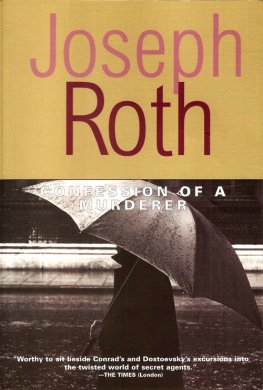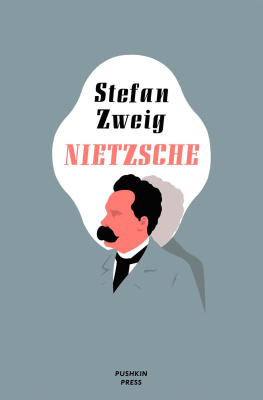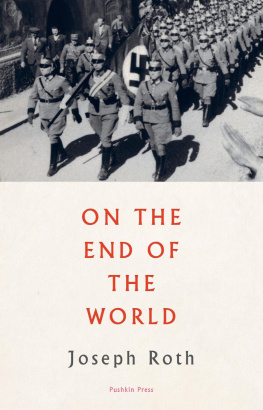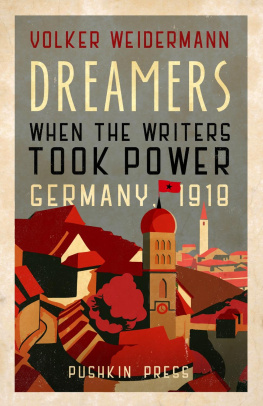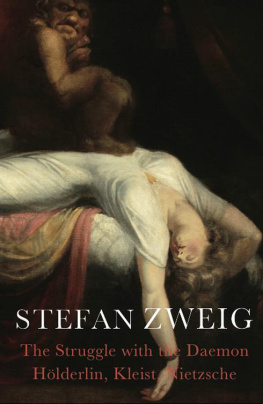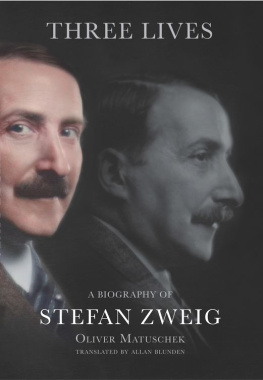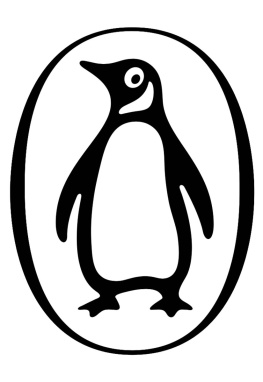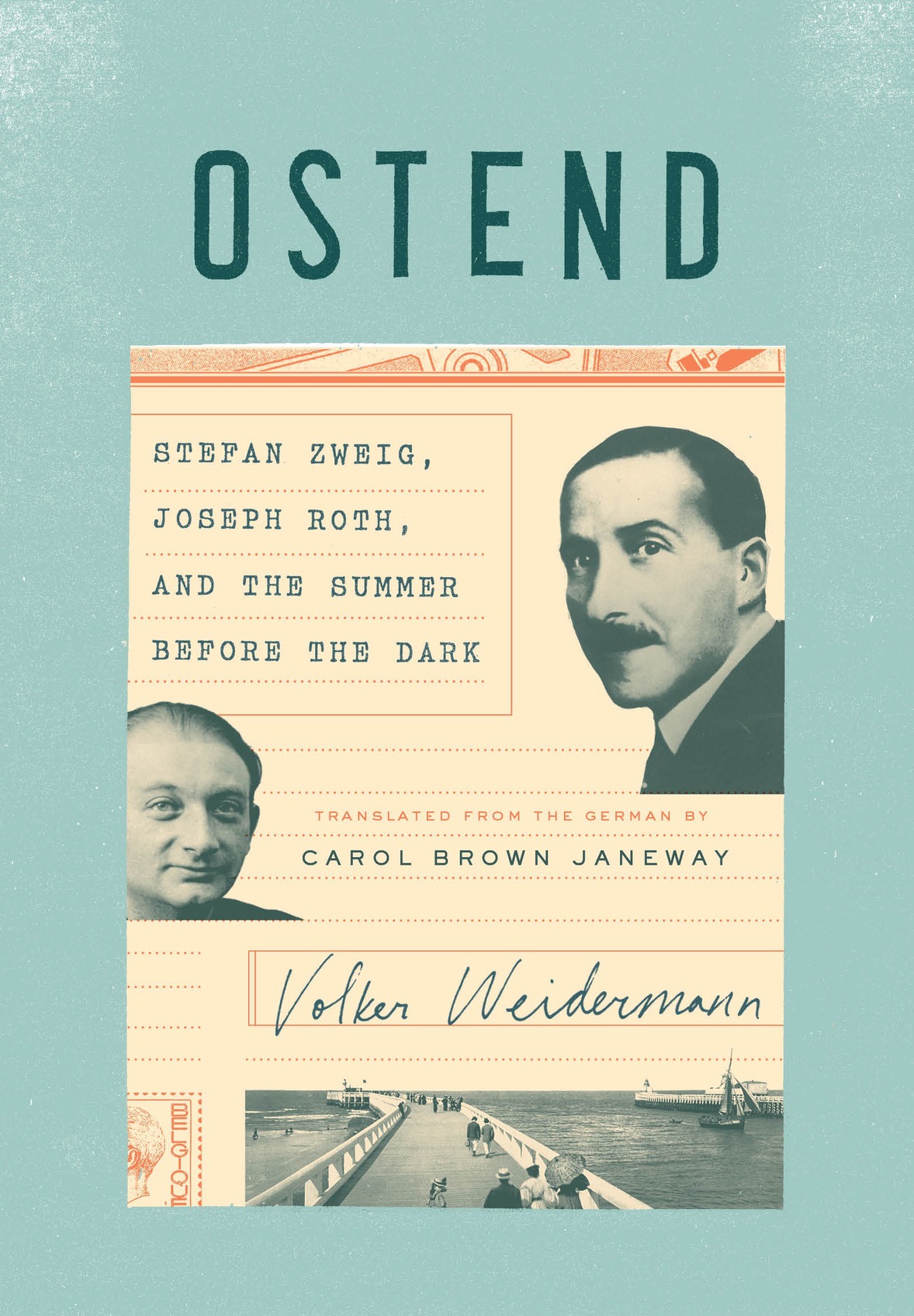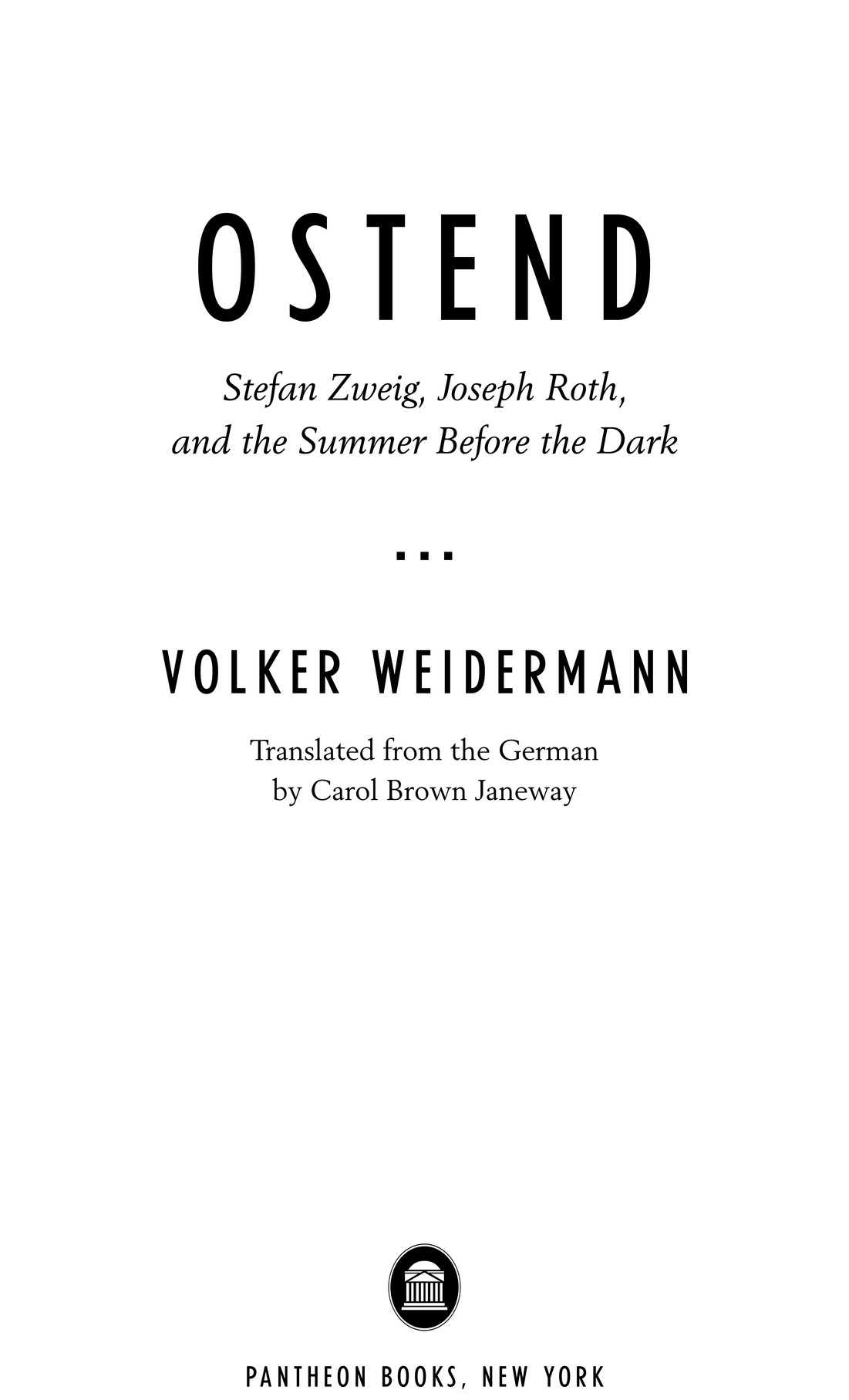Translation copyright 2016 by Carol Brown Janeway
All rights reserved. Published in the United States by Pantheon Books, a division of Penguin Random House LLC, New York, and distributed in Canada by Random House of Canada, a division of Penguin Random House Canada Ltd., Toronto. Originally published in Germany as Ostende: 1936, Sommer der Freundschaft by Verlag Kiepenheuer & Witsch, Cologne, in 2014. Copyright 2014 by Verlag Kiepenheuer & Witsch.
Pantheon Books and colophon are registered trademarks of Penguin Random House LLC.
Grateful acknowledgment is made to the following for permission to reprint previously published material: A. S. Kline: Excerpt from The Violet by Johann Wolfgang von Goethe, translated by A. S. Kline, translation copyright 2004 by A. S. Kline. All rights reserved. Reprinted by permission of A. S. Kline. Stephen Mitchell: Excerpt from The Lay of the Love and Death of Cornet Christoph Rilke, by Rainer Maria Rilke, translated by Stephen Mitchell. Reprinted by permission of Stephen Mitchell.
Library of Congress Cataloging-in-Publication Data
Weidermann, Volker, [date]
[Ostend. English]
Ostend : Stefan Zweig, Joseph Roth, and the summer before the dark / Volker Weidermann ; translated from the German by Carol Brown Janeway.
pages ; cm
ISBN 978-1-101-87026-6 (hardcover). ISBN 978-1-101-87027-3 (eBook).
1. Authors, GermanHomes and hauntsBelgiumOstend. 2. Authors, AustrianHomes and hauntsBelgiumOstend. 3. Authors, exiledBelgiumOstend. 4. Zweig, Stefan, 18811942Friends and associates. 5. Roth, Joseph, 18941939Friends and associates. 6. Keun, Irmgard, 19051982Friends and associates. 7. Ostend (Belgium)Social life and customs. 8. Nineteen thirty-six, A.D. I. Janeway, Carol Brown, translator. II. Title.
PT405.W3513613 2015 838'.91209dc23 2015019901
eBook ISBN9781101870273
www.pantheonbooks.com
Cover images: (top, right) Stefan Zweig: Imagno/Hulton Archive/Getty Images; (middle, left) Joseph Roth: Granger, N.Y.C.; (bottom) Port of Ostend: Library of Congress, Washington, D.C.
Cover design by Oliver Munday
v4.1_r3
ep
Contents
ITS SUMMER UP HERE by the sea; the gaily colored bathing huts glow in the sun. Stefan Zweig is sitting in a loggia on the fourth floor of a white house that faces onto the broad boulevard of Ostend, looking at the water. Its one of his recurrent dreams, being here, writing, gazing out into the emptiness, into summer itself. Right above him, on the next floor up, is his secretary, Lotte Altmann, who is also his lover; shell be coming down in a moment, bringing the typewriter, and hell dictate his Buried Candelabrum to her, returning repeatedly to the same sticking point, the place from which he cannot find a way forward. Thats how its been for some weeks now.
Perhaps his great friend Joseph Roth will have some advice. His friend, whom hes going to meet later in the bistro, as he does every afternoon this summer. Or one of the others, one of the detractors, one of the fighters, one of the cynics, one of the drinkers, one of the blowhards, one of the silent onlookers. One of the group that sits downstairs on the boulevard of Ostend, waiting for the moment when they can go back to their homeland. Racking their brains over what they can do to change the worlds trajectory so that they can go home to the country they came from, so that in turn they can maybe even come back here to this beach on a visit one day, as guests. For now, theyre refugees in vacationland. The apparently ever-cheerful Hermann Kesten, the preacher Egon Erwin Kisch, the bear Willi Muenzenberg, the champagne queen Irmgard Keun, the great swimmer Ernst Toller, the strategist Arthur Koestler: friends, foes, storytellers thrown together here overlooking the beach in July by the vagaries of world politics. And the stories they tell will be the fragments shored against their ruin.
Stefan Zweig in the summer of 1936. He looks at the sea through the large window and thinks with a mixture of pity, reticence, and pleasure about the group of displaced men and women he will be rejoining shortly. Until a few years ago, his life had been pure ascentsimple, greatly admired, and greatly envied. Now hes afraid, he feels himself bound by a hundred obligations, a hundred invisible fetters. Nothing will loosen them, nothing will provide support. But there is this summer, in which everything might change. Here, on this extravagantly wide boulevard with its magnificent white house and its great casino, the extraordinary Palace of Luck. Holiday mood, lively atmosphere, ice creams, parasols, lethargy, wind, wooden booths.


He was here once before; it was the summer of 1914, when the disaster began; with the headlines and the newsboys all along the beach promenade screaming more excitedly with every day that passed, excited and joyous because they were doing the best business theyd ever had.
The majority of the bathers who tore the papers out of their hands were German. The boys yelled the headlines: R USSIA P ROVOKES A USTRIA ; G ERMANY P REPARES TO M OBILIZE . And Zweig toopale, well dressed, with wire-rimmed glassescame down by tram to be closer to the unfolding news. He was electrified by the headlines; they made him feel delightfully aroused and excited. Of course he knew that the whole drama would subside into a general silence soon enough, but right now he simply wanted to savor it. The possibility of a great event. The possibility of a war. The possibility of a grand future, of an entire world in motion. His joy was especially great when he looked into the faces of his Belgian friends. They had turned pale in the course of these last days. They were unprepared to join the game and seemed to be taking the whole thing very seriously. Stefan Zweig laughed. He laughed over the pathetic troops of Belgian soldiers on the promenade. Laughed over a little dog that was dragging a machine gun along behind it. Laughed over the entire holy solemnity of his friends.
He knew they had nothing to fear. He knew that Belgium as a country was neutral; he knew that Germany and Austria would never overrun a neutral country. You can hang me from this lamppost if the Germans march in here, he cried to his friends. They remained skeptical, and their faces turned grimmer as the days went by.
Where had his Belgium gone so suddenly? His supposed land of vitality, of strength, of energy, and the intensity of another kind of life. That was what he so loved about this country and this sea. And why he so admired the countrys greatest poet.


